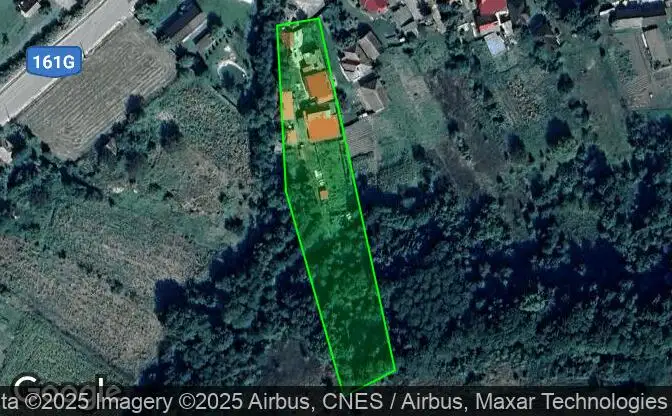Fazenda/Rancho à venda Vaida-Camaras, Vaida Camaras

















25 minutes away from Cluj International Airport and Romania's second largest city, Cluj-Napoca, lies a self-sufficient farm in a peaceful Transylania village (Vaida Camaras); The complex comprises: A main house (thick walls and 30 cm external insulation) Ground floor 90 m² with finished finishes (only the kitchen needs to be equipped) 70 m² upper floor (without finishing) Plus : Separate studio 18 m² New refractory brick bread oven The other buildings or features are: Former dairy/summer kitchen 12 m² (partially renovated) New sheepfold 16 x 9 m with concrete floor, segmented, including a milking platform (for goats) and rabbit cages (double mesh to protect the young rabbits) Former 2-level barn Hay store 12 x 5 m 2 woodsheds Open garage Tool store Three metal silos for natural drying and storage of corn on the cob (in the poultry pen) 11x4x3m pond (water retention tarpaulin to be changed; fish can be kept in it, otherwise duckweed, which poultry love, is an excellent source of protein) Half-buried cellar (on the hillside) 25 m² Grassed area + herbs with a small swimming pool (amenity) The land (3500 m2), fully fenced with a 2 m high fence, is broken down as follows: - 20% with the buildings (except the cellar), mini vegetable garden, courtyard and farmyard (including 2 morus, a pecan tree and a vine), - 35% also flat area (half a vegetable garden area with dark soil), 1/3 winter enclosure for goats or other animals, 1/6 area with decomposed manure very favorable for squash) - 45% of the sloping area or its immediate surroundings is planted with orchards. These include both old trees (walnuts, apples, plums, and dogwoods) and a large number of trees planted a few years ago that are gradually coming into production (3 fig trees—rare in the region—2 peach trees, 5 apple trees, 5 plum trees, 3 cherry trees, 5 pear trees, 3 hazelnut trees, 2 apricot trees, a mulberry tree, a chestnut tree, a black walnut tree, an eleagnus, a raspberry tree, a toona cedrela sinensis, a pagoda tree, a Chinese raisin tree, a nashi tree, etc.) The majority of these trees come from the Grange nursery. Black locusts grow between fruit trees, fixing nitrogen and providing firewood or stakes. At the top of this area, a second well is being finalized (already about 13 m dug) to provide access to pure underground water (otherwise, there is a "public" source about 2 km away)















